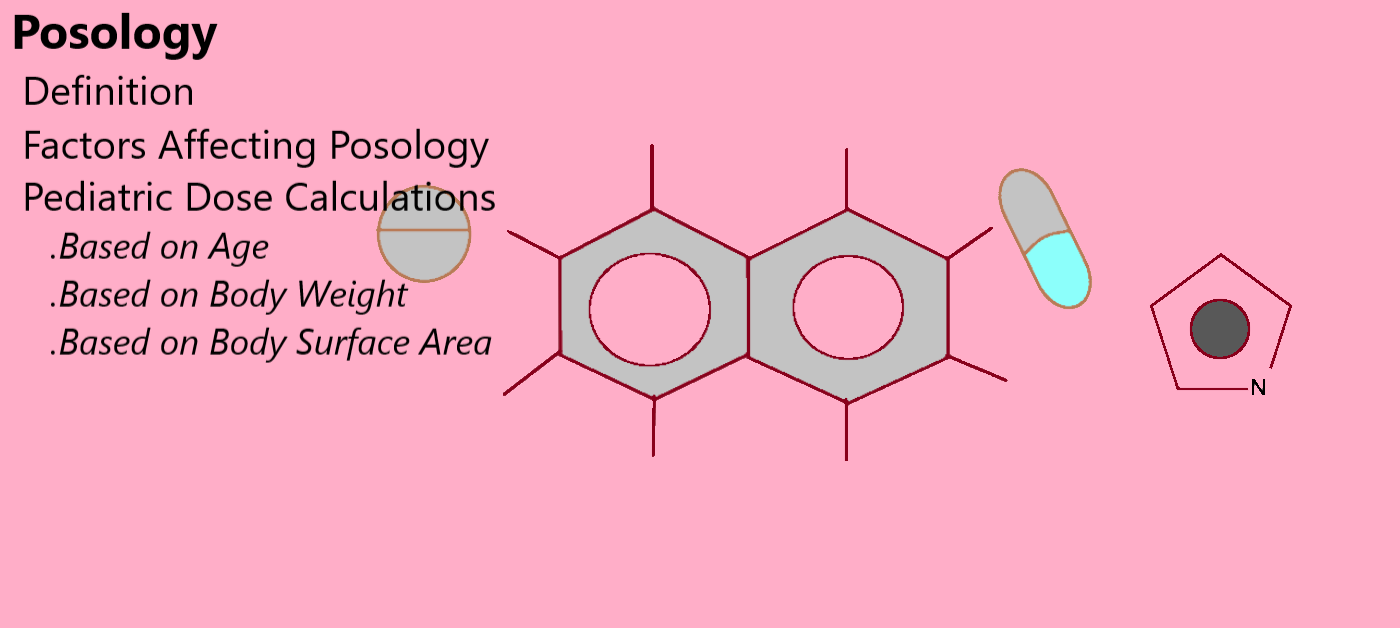Learn about posology definition and factors affecting in pharmaceutics, with pediatric dose calculations (age, body weight, surface area).
Posology
- Posology is the study of how drugs are used and administered to achieve their desired effects in the body.
- It involves determining the appropriate dosage, frequency, and duration of drug therapy for a specific patient or population.
Factors Affecting
Several factors can affect posology, including:
- Age: Infants, children, adults, and elderly individuals may require different doses of medication due to differences in metabolism, elimination, and organ function.
- Body weight: Dosing may be adjusted based on a patient’s body weight, particularly in overweight or obese individuals.
- Renal function: Patients with renal impairment may require dose adjustments as drugs are primarily eliminated through the kidneys.
- Hepatic function: Patients with liver disease may require dose adjustments as drugs are primarily metabolized in the liver.
- Drug interactions: Concurrent use of multiple medications may require dose adjustments due to potential drug interactions.
Pediatric Dose Calculations
Pediatric dosing can be challenging as children’s pharmacokinetics vary from adults. The three most common methods used for calculating pediatric doses are:
- Based on age.
- Body weight.
- Body surface area.
A. Based on Age
- Age-based dosing involves using age to estimate a child’s dose.
- This method is commonly used for medications with a narrow therapeutic index, where small variations in dose can have significant clinical consequences.
B. Based on Body Weight
- Body weight-based dosing involves using a child’s weight to calculate the appropriate dose of medication.
- This method is particularly useful for drugs with a wide therapeutic index.
C. Based on Body Surface Area
- Body surface area-based dosing involves using a child’s body surface area (BSA) to calculate the appropriate dose of medication.
- This method is typically used for drugs that are highly toxic or that require precise dosing.
In conclusion, posology is a critical aspect of pharmacology, as it determines the optimal dose of medication for a patient. Factors that affect posology include age, body weight, renal and hepatic function, drug interactions, and other individual characteristics. For pediatric dosing, age, body weight, and body surface area are commonly used to calculate the appropriate dose of medication.
You would also like to read What are the sources of impurities?

